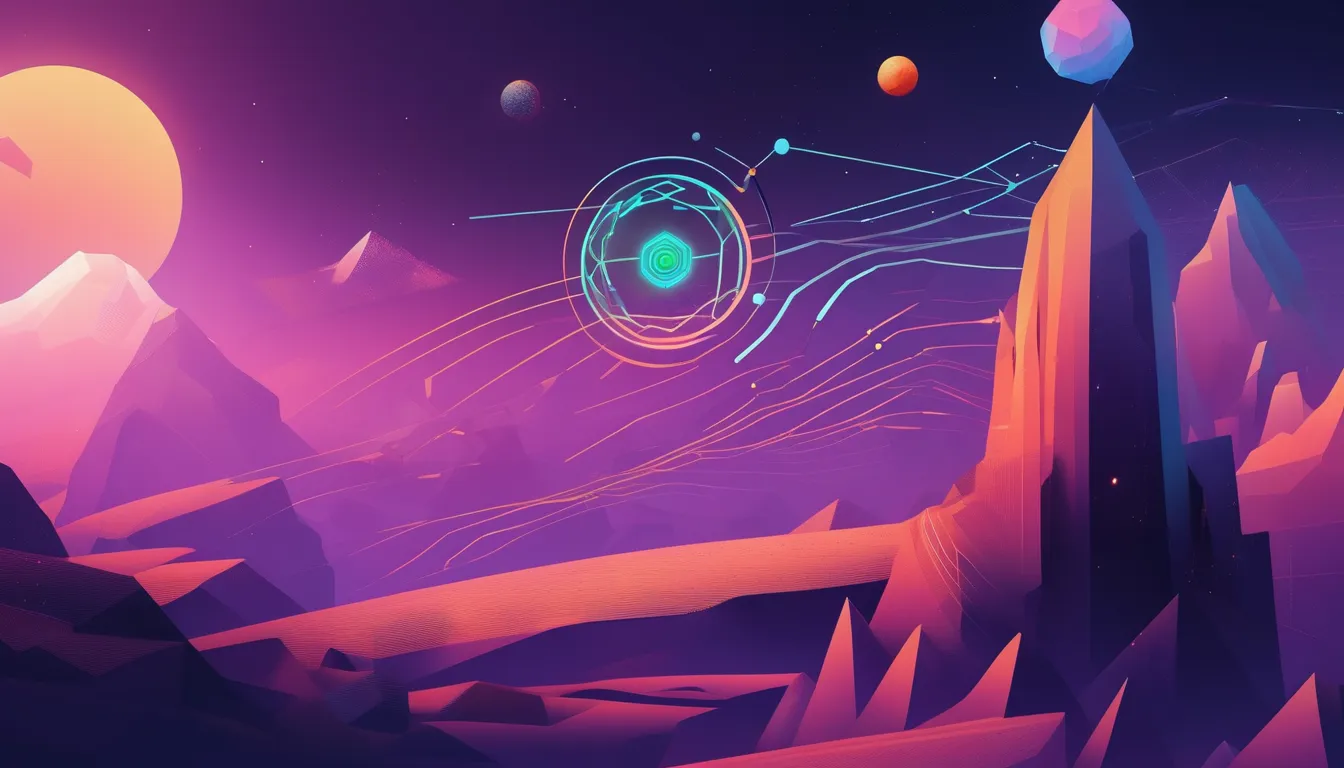You're likely familiar with the concept of buying and selling unique digital assets, but have you ever stopped to consider the platforms that make these transactions possible? NFT marketplaces are digital trading platforms that utilize blockchain technology to ensure the authenticity and ownership of digital assets like art, music, and collectibles. These platforms are changing the way creators monetize their work and connect with a global audience. As you explore the world of NFT trading, you may wonder: what makes these marketplaces so effective, and how can you use them to buy, sell, and trade digital assets with confidence?
What Is an NFT Marketplace
You're probably no stranger to the concept of online marketplaces, where you can buy and sell goods. However, an NFT marketplace is a bit different.
It's a digital platform that allows artists, creators, and collectors to buy, sell, and trade unique digital assets, known as non-fungible tokens (NFTs). These assets can be anything from art, music, and videos to collectibles and even in-game items.
When you think about it, traditional online marketplaces are designed to facilitate the buying and selling of physical goods. But NFT marketplaces cater to a specific type of digital asset that can't be replicated or exchanged for something identical.
Each NFT has its own distinct characteristics, ownership history, and value.
As a buyer or seller in an NFT marketplace, you'll typically interact with a platform that uses blockchain technology to verify ownership and ensure the authenticity of the digital assets being traded. This decentralized approach allows for secure, transparent, and tamper-proof transactions.
Key Features of NFT Marketplaces
When navigating an NFT marketplace, several key features set them apart from traditional online marketplaces. You'll notice that most platforms allow you to create a digital wallet, which securely stores your NFTs and cryptocurrencies.
This wallet is usually linked to your marketplace account, making it easy to buy, sell, and manage your digital assets.
Another essential feature is the ability to discover and explore various NFT collections. You can browse through curated sections, search for specific artists or keywords, and even filter by price, rarity, or category.
This makes it easy to find the perfect NFT that suits your interests and budget.
Most NFT marketplaces also have a creator-focused approach, allowing artists to mint, list, and manage their own NFTs. This feature enables creators to maintain control over their digital assets and connect directly with buyers and collectors.
Additionally, many platforms provide social features, such as discussion forums and community chat, where you can engage with other collectors, artists, and enthusiasts.
These features enhance the overall NFT marketplace experience, making it more engaging and interactive.
How to Buy and Sell NFTs
Buying and selling NFTs on a marketplace requires a straightforward process. You'll start by creating an account on the NFT marketplace of your choice. This typically involves providing basic information, such as your name, email address, and password.
Once your account is set up, you'll need to link a digital wallet that supports cryptocurrency, as most NFT marketplaces use blockchain technology.
When you're ready to buy an NFT, browse the marketplace's listings to find the one you want. Each listing will include details about the NFT, such as its name, description, and price.
If you decide to make a purchase, you'll use your digital wallet to complete the transaction.
To sell an NFT, you'll create a listing that includes the NFT's name, description, and price.
You can also set a reserve price and decide whether to auction the NFT or sell it at a fixed price. Once you've created your listing, you can share it with potential buyers.
When a buyer purchases your NFT, the marketplace will facilitate the transaction and transfer the funds to your digital wallet.
Benefits of Using NFT Marketplaces
Several key benefits make NFT marketplaces an attractive choice for creators and collectors alike. For one, they offer a secure and transparent way to buy, sell, and trade unique digital assets. You can easily verify the ownership and authenticity of NFTs, which reduces the risk of scams and forgeries.
Additionally, NFT marketplaces provide a global platform for creators to showcase and monetize their work, allowing them to reach a broader audience and gain more exposure.
You also benefit from the decentralized nature of NFT marketplaces, which allows dedust io peer-to-peer transactions without intermediaries. This not only reduces transaction costs but also gives you more control over your digital assets.
Moreover, NFT marketplaces often offer features such as portfolio management, price tracking, and community engagement, making it easier for you to stay on top of your NFT investments. By using NFT marketplaces, you can tap into a vibrant community of collectors and creators, and participate in the growing world of digital art and collectibles.
The Future of NFT Trading
The future of NFT trading is expected to be shaped by a few key trends. As you navigate this rapidly evolving space, it's essential to stay ahead of the curve.
One thing is certain – NFT trading will continue to play a significant role in the digital art and collectibles market.
Here are four key trends that will shape the future of NFT trading:
- Improved Interoperability: You can expect NFT marketplaces to become more interconnected, allowing for seamless trading across different platforms.
- Increased Adoption of Blockchain Gaming: As blockchain gaming grows in popularity, you'll see more NFTs being used to represent in-game items and assets.
- Greater Focus on Sustainability: The NFT market will shift towards more environmentally friendly practices, such as the use of proof-of-stake consensus algorithms.
- More Mainstream Recognition: NFTs will become more widely accepted and recognized as a legitimate form of digital ownership, leading to increased adoption among mainstream audiences.
As these trends take shape, you can expect the NFT trading landscape to become even more exciting and dynamic.
Conclusion
You're now part of a digital revolution that's changing the way unique assets are traded. As NFT marketplaces continue to evolve, you can expect more innovative features and new opportunities for creators and collectors alike. With their secure, transparent, and decentralized environment, these platforms are set to shape the future of digital ownership and trading. Get ready to experience the limitless possibilities of NFT marketplaces and what they have in store for you.


